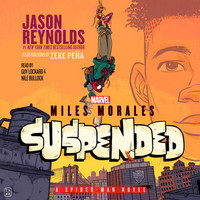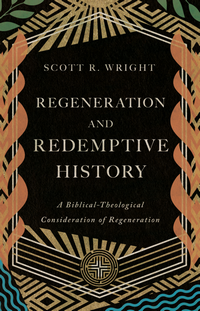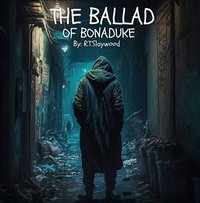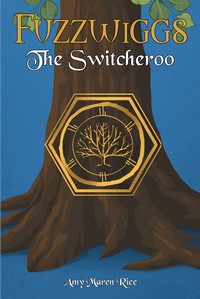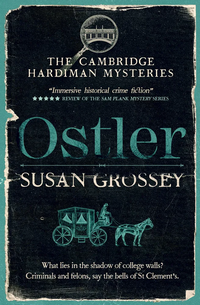I’ve got a Q&A with the author, Amy Maren Rice, coming up this afternoon, come back and give it a read, will you?
by Amy Maren Rice
DETAILS:
Series: Fuzzwigs, #1
Publisher: Covenant Books
Publication Date: July 14, 2022
Format: Paperback
Length: 294 pg.
Read Date: August 31-September 2, 2023


A Brief Introduction/Disclaimer
When I type (and when I read), I always insert an “i” between the “z”s and the “w”. I don’t know why, it just got into the back of my head that way. I believe I caught them all in proofreading, but I may not have.
Apologies in advance. Also, next time she comes up with a race of extra-dimensional characters, I hope Rice consults with me about the vowels she should use.
…the bowl shifted.
Slowly the crimson crockery began to rise. Twig like fingers curled around the edge. A pair of furry arms followed and then came two frightened golden eyes that blinked rapidly at them. A triangular face with a soft puppylike nose was next. It twitched as a strand of pasta slid off it to the floor. Oversized tufted ears slowly unfolded as the creature spoke…
“Please, we are needing your help.” It repeated, its eyes large and pleading like a puppy begging for a treat.
Jasper rubbed his own eyes in disbelief. “W-w-w…” he stuttered. He licked his lips he tried again. “What are you?”
“We are being the Fuzzwiggs,” the creature replied.
“Whose [sic] ‘we’ and what are, uh, those?” Milo asked, brushing the lettuce from his hair.
The animal made a gesture with his long fingers and several other big-eyed furry creatures shuffled forward, filling the room. They came from behind doors and under furniture. One was even inside a kitchen cabinet. Their rabbit like feet stepped carefully around the food-splattered floor…
What’s Fuzzwiggs: The Switcheroo About?
I’ll try to keep this brief…but no promises.
When we meet them, Jasper (12) and his brother, Milo (10), are moving to a new home. Their father died in a plane crash, and their mother can’t support the family as things are. So they, their mother (Emily) and baby brother (Wyatt) are going to live in tiny little town in Idaho to live with their grandfather and aunt. The brothers really don’t know their family well, but the house their father grew up in is large enough for them and the change will be good for the family (or so Emily hopes).
When they arrive, no one is home. They didn’t expect their grandfather to be there—he travels a lot and doesn’t do a great job of keeping the family updated on his location. But their Aunt Delilah should’ve been there. In her place is a note welcoming them to the house, telling them to choose their own rooms, make themselves comfortable, and to do a few specific things—follow some rules and do some chores. Some of the chores and rules are odd, but whatever.
The house is large and wonderful—the boys really want to go exploring some of the strangeness, but their mother makes them focus on unpacking and whatnot. Perhaps the strangest thing about the house is that there is a large, old tree in the center of it—words like “mega” and “ancient” are used by the boys to describe it. Their dad used to joke about being raised in a tree house. Now they get it. Sort of.
What the family is going to learn, is that the Great Tree is a vitally important object beyond their comprehension. It’s guarded (in part) by some strange and magical creatures called the Fuzzwigs. The odd thing about these creatures (well, one of the odd things) is that their magic comes from their flatulence.
But before they learn that, as is expected in stories where people are given oddly specific instructions and warnings—Emily and the kids don’t really heed them as they should. The consequences of that are going to bring a lot of trouble—and the Fuzzwigs—into their lives.
Fuzzwiggs
This is going to be the crux of the book for (at least) most readers—what do you think of these creatures? Even the Middle-Grade readers of this book are going to be familiar with a lot of the things in the novel—the bickering brothers, the family tragedy that makes them move, the mysterious extended family members they have to rely on, the strange thing in the new house that comes with a lot of rules, etc. And sure, silly intelligent (or at least sentient and capable of communication) creatures will be familiar, too—but the Fuzzwiggs are what’s going to draw the attention and keep it or lose it.
For this reader, they kept it. It helps once you get to the point you can see beyond the obvious comedy and get to something deeper (not much deeper, it’s not that kind of book)—I don’t know how much the target audience will respond to that, probably more than I reflexively give them credit for. Also, this will be easier to talk about when we get to Book 2 in the series and I can talk about some of these deeper ideas without spoiling things.
I think the easiest comparison I can make to help one of my readers to understand the Fuzzwiggs is the lemurs from Madagascar movies and the spin-off movies/show. They have a similar kind of manic energy and attitudes. As I make that comparison, I realize that the humor that comes from them reminds me of DreamWorks Animation movies in general.
We might as well segue to:
The Humor
Yes, it’s largely juvenile. So what? The book is directed at people who are juveniles. Can adults appreciate it? Yes, but only if they are willing to find humor in bodily functions and whatnot.
I think of it similarly to that line of C.S. Lewis’ about Fairy Tales, about one day being old enough to start reading them again. Or, “When I became a man I put away childish things, including the fear of childishness and the desire to be very grown up.” Human bodies are silly things that can make gross noises—at a certain age, we pretend it’s not amusing, and at a more advanced age we can chuckle at it again. Sure, I might not find the sounds and this book as amusing as a ten-year-old will…but I’m okay with that. Actually, I’m a little jealous.
So, to get back to the DreamWorks Animation idea—if Shrek and its counterparts are too juvenile for you—skip this book. And give it to someone who will enjoy the humor.
There is one character in particular I’d love to talk about on the comedy front, but it would spoil too much. Let’s just say that there’s a Hollywood hopeful in these pages that deserves a spin-off novella.
So, what did I think about Fuzzwiggs: The Switcheroo?
I really enjoyed the way that the whole family got involved—at least in some way—with the story. It’d have been very easy for Rice to focus on Jasper and Milo—or the boys and their aunt. But Rice got their baby brother rather involved in the story to great effect—Wyatt’s antics elicit some good chuckles and also brought some sweetness into things. I also appreciated the way their Mom was handled—we get a little from Emily’s perspective, we understand how everything we see here is difficult for her and yet she knows it’s best, and so on. And then she’s largely sidelined because this is a MG book and it’s a rule. Or, to put it less cynically, otherwise, the boys couldn’t get into adventures. But it’s a comical sidelining that Rice used well.
The adventure story itself is exactly what you want in this kind of story—there’s a great trek through the wilderness, hazards from within and without, some villains that really don’t realize what they’ve gotten themselves into (they’re both rotten and comical, a great combination for this kind of book), and some great battles (or scenes that are battle-ish and I don’t know how else to characterize them) and some nice story resolutions with hidden life lessons in them. It’s a good balance between comedy and adventure that I’d imagine would appeal to a broad range of middle-grade readers.
I had a few quibbles with the book and feel like I should mention them. There’s a museum in town that was established before Lewis and Clark stumbled through the area. I assume that was an editorial slip, or there’s going to be a great explanation eventually given for that. I do wonder if some of the descriptions of the magic/abilities of some of the creatures could’ve been explained a little better. Some (all?) of the scenes that cut away to things not directly involving the main events of this book were really hard to follow, yes, they’re establishing the world for this series and setting up future books. But I think a little more finesse would’ve helped a lot here. Neither of these are fatal flaws, and I anticipate that Rice will do this kind of thing better as she writes more. But they dampen my enthusiasm a bit.
Just a bit, though. I had a ball with this book and I think my readers would enjoy it—and the kids in their lives would enjoy it even more. I’m eager to see where Rice takes this series and I really want to see the scenes that follow the Epilogue. I imagine most readers will be with me there.
Pick this up—I think you’ll be happy you did.

This post contains an affiliate link. If you purchase from it, I will get a small commission at no additional cost to you. As always, the opinions expressed are my own.

 Warriorborn
Warriorborn

![]()



